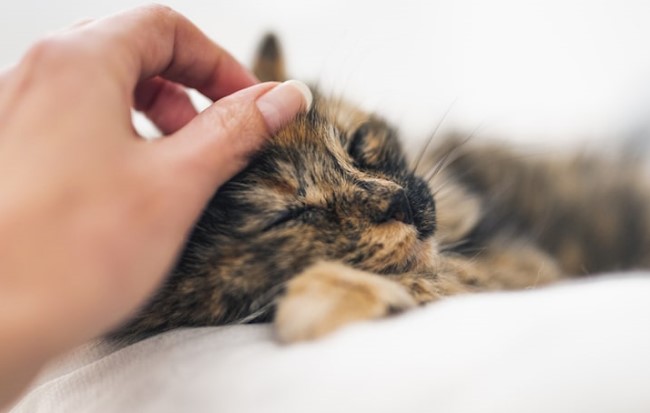Feline Pneumonia
If it isn’t treated, feline pneumonia can turn into a serious problem. It occurs when the lungs become inflamed due to a foreign substance or organism of some sort. When inflamed, the lungs won’t be able to perform properly which causes breathing difficulty. Fortunately, this condition doesn’t affect cats frequently.
Cause
Pneumonia in cats usually occurs whenever they’re suffering from another condition that affects the respiratory system. The weakened immune system leaves them susceptible. Invasion of organisms like fungi, viruses, or bacteria can also lead to this respiratory illness. Cats that inhale water, vomit, or another type of substance that can irritate that lungs are also at risk.
Signs
The most noticeable sign of cat pneumonia is breathing difficulty. You may notice respiratory sounds being louder than normal. If only a small portion of the lungs are inflamed, signs won’t be as bad. Symptoms will become more severe as a larger portion of the lungs become affected. Other signs include nasal discharge, coughing, and fever. It is also common for felines to lose their appetite somewhat.
Diagnosis
Like with most conditions, the vet will start out reviewing your pet’s medical history and performing a physical examination. He will pay special attention to the chest if feline pneumonia is suspected. Using a stethoscope, he’ll be able to hear if there are any breathing problems.
In order to get a definitive diagnosis though, an x-ray of the chest may need to be done. As mentioned, various organizations can cause pneumonia in cats. It’s necessary to identify the specific one that’s causing the condition if a foreign substance isn’t to blame.
Treatment
If an invading organism can be identified to be the cause of the illness, the appropriate medication will be prescribed. This is only effective if the organism is bacterial. In some cases, cats will need to undergo surgery to correct the problem.
Pneumonia in felines causes respiratory distress, the severity of which varies. If the distress is severe, your cat may need to receive oxygen therapy. Intravenous fluids can be helpful if dehydration is a concern.
Prognosis
Most cats are able to recover from this condition if they are otherwise healthy. Other conditions that cause pneumonia to develop on a secondary basis may lower the prognosis. Infectious peritonitis is a disease that can lead to cat pneumonia, and it is generally fatal, especially for young or old cats.

